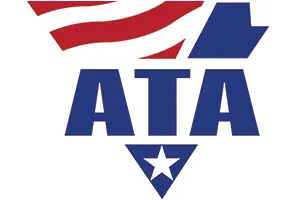Senior Reporter
DOD Marches on With $17.9 Billion Moving Contract

[Stay on top of transportation news: Get TTNews in your inbox.]
Despite continuing concerns voiced by some large movers, military officials are advancing efforts toward interstate implementation of the $17.9 billion Global Household Goods contract, adding more installations and increasing shipment volume monthly from now through the spring of 2025.
Earlier this month, the U.S. Transportation Command, which supervises the moving contract for members of the military and their families, announced that beginning Oct. 7, the command would coordinate with military services and the U.S. Coast Guard to begin servicing select installations in Georgia, Kansas, Kentucky, North Dakota and Missouri. Transcom said it’s aiming to achieve full domestic implementation by the spring.
However, international shipments under GHC are expected to begin no earlier than September 2025, which would not include shipments in time for the very busy 2025 summer moving season.
In all, the Department of Defense oversees an estimated 325,000 annual moves of military families worldwide, with peak military moving season taking place May 15 through Aug. 31.
RELATED: Military’s $17.9 Billion Moving Contract Off to Slow Start
The GHC allows one contractor, Houston-based HomeSafe Alliance, to oversee the program.
Summer’s coming up. It may seem like months away, but when it gets here and you don’t have the drivers to do the work, that’s when it’s going to be felt. We’re trying to fit an industry into a model that isn’t set up for the industry.
Bill Lovejoy, Republic Moving and Storage president and chairman of American Trucking Associations’ Moving & Storage Conference
Image
While some companies are already completing moves under the new contract, some large movers are maintaining a wait-and-see position before signing up until their questions are answered. One sticking point centers on the requirements of the federal Service Contract Act, which provides workers on federal service contracts the right to receive at least the locally prevailing wage rate and fringe benefits, as determined by the Labor Department, for the type of work performed.
“I think Transcom is determined to push ahead,” said Bill Lovejoy, president of San Diego-based Republic Moving and Storage and chairman of American Trucking Associations’ Moving & Storage Conference. “But at this point in time, we still do not know how to comply with the SCA rules. We’re trying to figure that out.”

So far, the Labor Department has yet to hand down an interpretation of the act related to moving, leaving movers to determine for themselves whether the financials work, according to Lovejoy.
“At some point, something has got to give,” Lovejoy added. “Summer’s coming up. It may seem like months away, but when it gets here and you don’t have the drivers to do the work, that’s when it’s going to be felt. We’re trying to fit an industry into a model that isn’t set up for the industry. If we knew how we should comply, we would. But we don’t.”
Dan Hilton, executive director of ATA’s MSC, said, “As we turn the corner on GHC’s implementation, every day that this industry awaits guidance on the Service Contract Act is a day wasted. The risk of being out of federal compliance is too great. It is imperative that the Department of Labor come to the table and provide the necessary information to successfully undertake military moves.”

Hilton
Hilton added, “Any chance for this to succeed would require the Department of Labor to understand how incompatible the SCA is with the moving and storage industry. The sooner this is realized, the better off the program’s success might be.”
Meanwhile, the House Committee on Armed Services has issued a report directing the Government Accountability Office to provide a briefing to the committee no later than April 1, 2025, to evaluate management and oversight of the GHC and Defense Personal Property Program.
The House report also instructs GAO to investigate the extent to which Transcom has developed an effective process for documenting and monitoring GHC performance and “several other matters that the comptroller general identifies as relevant.”
The committee also has directed the Transcom commander to provide a briefing to the Armed Services Committee no later than Dec. 31, 2024, assessing the initial transition of GHC services, including a peak season forecast for 2025.

Samson
“We’ve been working with DOL and Transcom,” said Jon Samson, vice president of ATA conferences. “They have said verbally that they are going to put something together that would specifically address household goods movements under the contract.”
Why the delay? “I think there’s confusion, not just within the industry, but within the agencies as well as far as how this is going to impact this particular business model,” Samson said. “The DOL hasn’t traditionally really reacted in the household goods space prior to this GHC contract.”
Want more news? Listen to today's daily briefing above or go here for more info
“HomeSafe Alliance fully supports U.S. Transcom’s current efforts to work with the Department of Labor to create a guide for the household goods moving industry on SCA compliance,” a HomeSafe spokeswoman said. “Additionally, the DOL has a plethora of existing resources on SCA compliance.” The spokeswoman said HomeSafe created a resource guide with open-source DOL information that is published at HomeSafeAlliance.com.
“To date, the providers performing GHC moves in the HomeSafe program have had no issues complying with SCA using the resources already available,” she said.





